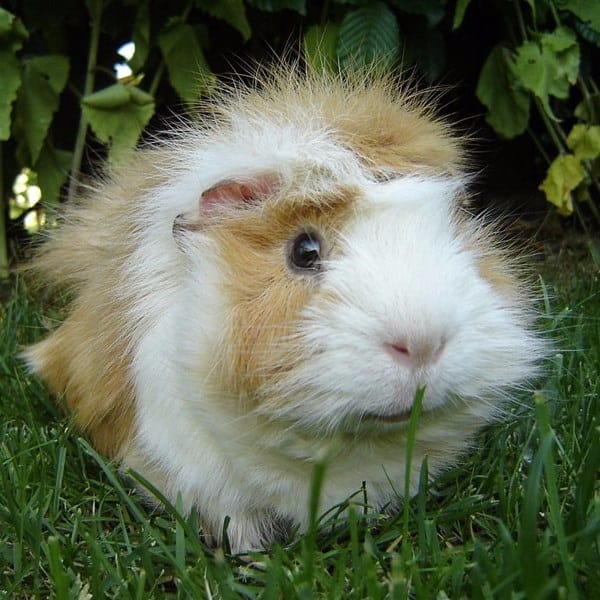SynAbs is a young UCL spin-off company, founded in September 2015 with the support of Walloon life science incubator WBC, UCL’s tech transfer office LTTO and the French investment group Biotech Investissement. As a producer of monoclonal antibodies (mAbs), SynAbs is dedicated to bringing innovative concepts to the R&D and IVD markets. Next to conventional mouse and rat antibodies, the company also develops antibodies of guinea pig origin. The unique characteristics of these first-in-class antibodies significantly expand upon the applications of their mouse counterparts.
Antibodies are one of the most widely used biomaterials in IVD due to their selective binding to a broad range of biomolecules. Their ability to specifically detect proteins or small molecules in complex mixtures has made them an invaluable tool in molecular diagnostics.
An estimated 70% of all commercially available R&D and IVD antibodies are produced in mice. However, the repertoire of immunogenic antigens in mice has its limits. Phylogenetically, mice are relatively close to humans, and the high degree of homology between mouse and human proteins frequently results in low immune responses to human proteins. Also, many small molecules fail to elicit a strong immune reaction in mice. This makes the development of antibodies against hormones, antibiotics, toxins and lipids, etc., problematic with mice.
In search for alternatives
SynAbs’ rat antibodies can solve many of the challenges faced by the mouse versions. Rats respond to a broad spectrum of antigens, enabling them to produce antibodies that mice cannot. Additionally, the rat-rat hybridomas are stable and productive, two key characteristics of a successful hybridoma. Other advantages include high affinity and specificity. Despite these benefits, the homology with human proteins remains a problem for rat antibody production.
Another alternative to murine-based antibodies is their rabbit equivalents. Rabbit monoclonals have known signifcant success, claiming more than 10% of the R&D & IVD antibody market in a decade. Rabbit hybridomas, however, are rather expensive and poor antibody producers. Sheep are also used for antibody production, but they face the same problems as rabbits do. Both animals are also more expensive to use as experimental animals compared to mice and rats.
From lab rats to guinea pigs
SynAbs has now developed a concept that combines the best of both worlds: guinea pig monoclonal antibodies. From stable hybridomas to a broad, non-murine antigen repertoire, guinea pigs offer various advantages in the field of antibody production:
- In evolutionary terms, guinea pigs are more distant from humans than mice.
Many human proteins and their rodent counterparts have identical amino acid sequences. This homology is much weaker in guinea pigs, as they are phylogenetically more distant from rodents and humans. The amino acid sequence of glucagon, for instance, is identical in humans, mice, rats, rabbits and sheep. In contrast, the guinea pig sequence differs in 5 out of 29 amino acids. The same can be said for insulin, of which the human version has 94% homology with mice and rats and is identical with that of rabbits and sheep but has only 72% homology with guinea pigs. This difference is important when considering antigen immunogenicity; it enables guinea pigs to develop antibodies against many human antigens where mice, rats or rabbits would fail. - Guinea pigs are excellent antibody producers.
The humoral response of guinea pigs has been observed to be twice as high as that of mice or rats. This extraordinary immune activity also translates into lower amounts of antigen necessary to elicit a sufficient immune response. On top of this, approximately 107 lymphocytes can be isolated from a guinea pig spleen, which is about twice as much as from a mouse spleen. - Guinea pigs are suitable for lab environments
Guinea pigs are docile and easy to manipulate. Their small size makes them easy and cheap to accommodate, an asset they share with mice and rats but definitely not with rabbits and sheep. Easy access to the lymph nodes is an additional advantage of their size.
After a year of research, SynAbs has developed a successful fusion cell line, Syn2.2. Syn2.2 efficiently fuses with guinea pig B lymphocytes to obtain stable hybridomas: The fusion rate with guinea pig lymphocytes is comparable to that obtained with SP2O for mice or IR983 for rats, i.e., approximately 12 hybridomas per million fused lymphocytes. More than 1,000 hybridomas can be obtained from a single guinea pig spleen. While guinea pig hybridomas divide slightly more slowly than mouse or rat hybridomas, their production rates are comparable, and combined with the previously mentioned advantages, guinea pig mAbs are most certainly a competitive alternative to mouse, rat and rabbit mAbs.
For these reasons, Guinea pig monoclonals have a very promising future. SynAbs is currently focusing its research on antigens for which it is diffcult to obtain murine antibodies and improving immunization methods for guinea pigs. Other R&D areas include infectious diseases and blood sugar hormones, for which SynAbs is open to partnership proposals.
Figure on the right: Cell fusion for the creation of the Syn2.2 hybridoma
Header picture: Guinea pig created by Gerbils daughter, WikiMedia Commons
This article appears in the BioVox White Paper on In Vitro Diagnostics, May 2016. Download the complete work here.


